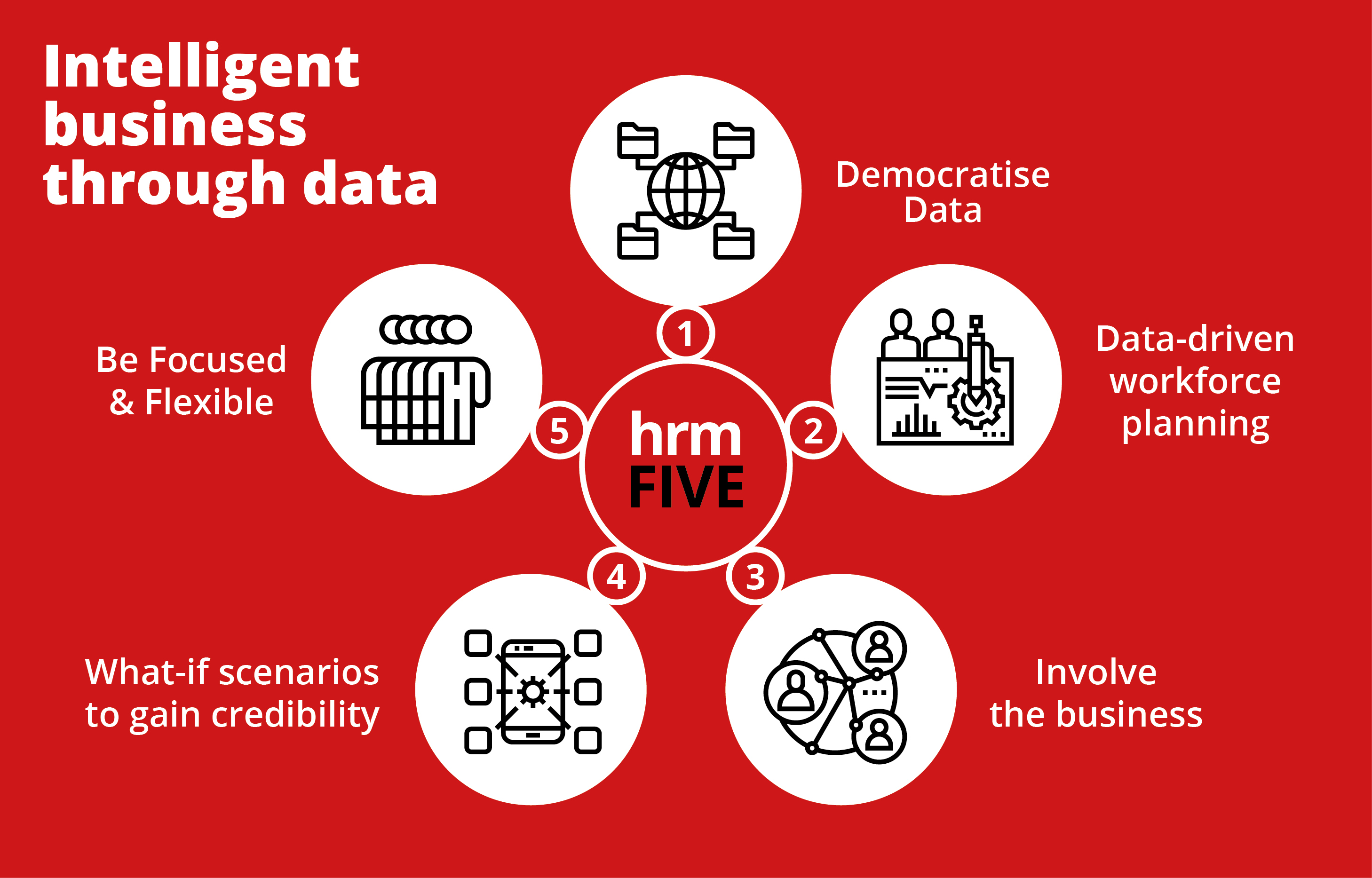HRM Five: Intelligent business through data
- HRM Asia Newsroom

The use of HR analytics in a business is only worthwhile if it achieves the intended results – in terms of sales, revenue, or any other outcome needed to continue a positive trajectory.
To ensure that the organisation uses data and analytics to make intelligent decisions, here are just some of the many considerations for HR and business leaders need to be mindful.
1. Democratise data
Without investing heavily in HR data, and taking an open approach to it, any people analytics effort is doomed to fail.
Everyone in HR, no matter what business, region, or role they’re in, should be able to access the information they need to make better people decisions.
This doesn’t mean just giving them access to raw data – but, for example, creating infrastructure that allows the generation of customisable reports.
2. Enable a culture of data-driven workforce planning
As with any organisational effort, training and on-boarding are key ingredients to success. HR professionals aren’t any different to the rest of the organisation.
Senior leaders and analytics teams need to be prepared to educate their HR peers about the ins and outs of people analytics: how it can help the organisation, and how it impacts every HR role directly.
Only then can HR, in turn, work with the business and continue to cascade that data-driven mindset.
3. Involve the business
Before building anything, rope in your key stakeholders to provide feedback and reactions.

This will help the analytics team stay on the right path – ensuring that they are using the right data points, that they have a complete and accurate picture, and that the insights they eventually obtain will actually be useful.
4. Use what-if scenarios to gain credibility
Don’t expect full buy-in from day one. HR analytics teams need to build credibility. One way to do this is to employ “what if” scenarios, evaluating which targets are feasible and which are not.
Coming up with three to four scenarios is a way to show management the different possibilities and issues.
But don’t just present these scenarios in isolation – HR should also make recommend action plans to overcome the challenges and achieve success.
5. Be focused and flexible
There is no one template for analytics – not just between organisations, but within organisations, themselves. Every region and business has its nuances and challenges.
So either focus on a region, a business, or a specific role (or a group of related roles). Anything more than that, and it becomes a case of comparing apples and oranges.
As a data-driven culture continues to embed itself in the organisation, and as technology itself improves, so to will the potential and scope of analytics expand.
But getting comfortable with the process and concepts should be the immediate priority.
| At the first-ever HR Festival Asia, brought to you by the combined experience of HR Technology Conference & Exposition (US) and HR Summit (Asia), delegates will learn more about using data to drive HR strategy and improve organisational performance; all while developing agile, forward-thinking HR.
The event’s dedicated HR Tech stream will explore how your organisation could be further leveraging emerging technologies and ideas such as the cloud, design thinking, the digitisation of work as well as AI, blockchain, and machine learning – all in the name of empowering a smart- future-ready workforce. For more information, visit www.hrfestivalasia.com. |







